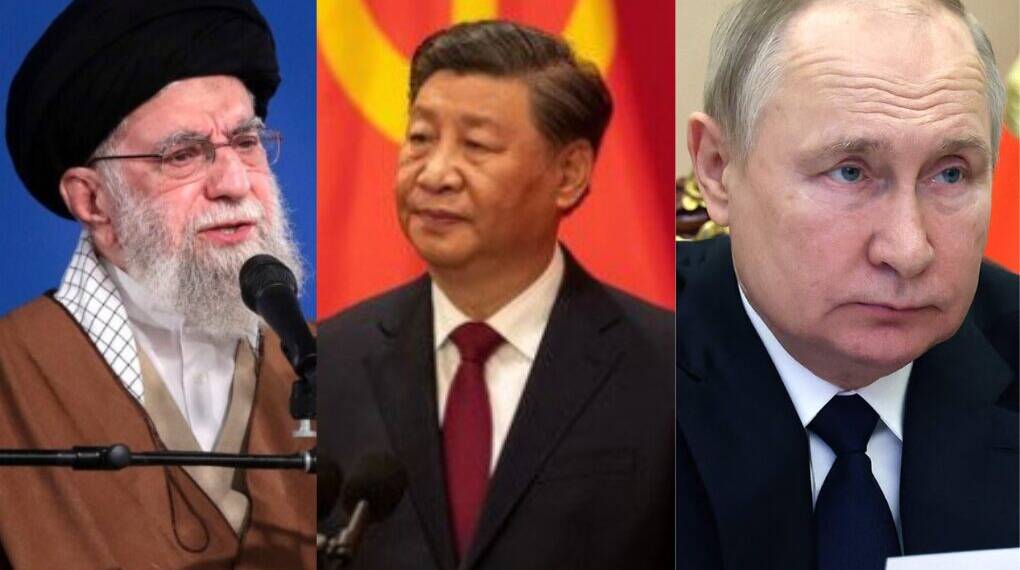In a critical geopolitical development, Iran has announced it will host high-level trilateral talks with Russia and China on Tuesday, July 22, just three days before it resumes formal nuclear negotiations with European powers in Istanbul.
The diplomatic maneuver underscores Tehran’s increasingly close alignment with Moscow and Beijing as the deadline approaches for salvaging the 2015 nuclear deal, formally known as the Joint Comprehensive Plan of Action (JCPOA). The agreement, which aimed to curb Iran’s nuclear capabilities in exchange for sanctions relief, is set to expire in October 2025.
Trilateral Talks Signal Strategic Realignment
Iranian Foreign Ministry spokesperson Esmail Baghaei confirmed that Foreign Minister Abbas Araghchi will meet with his Russian and Chinese counterparts ahead of Friday’s talks with European nations. “We are in constant consultation with these two countries to prevent activation of the snapback or to mitigate its consequences,” Baghaei stated during a press briefing.
The trilateral summit is widely seen as part of a broader strategic shift, with Iran solidifying ties with Russia and China amid growing tensions with the United States and Europe. Over the past year, the three nations have deepened cooperation through joint military drills, high-level diplomatic exchanges, and unified messaging on international platforms. Most recently, Iranian Defense Minister Aziz Nasirzadeh and senior adviser Ali Larijani met with Russian President Vladimir Putin in Moscow.
First Nuclear Talks Since June Ceasefire
The upcoming nuclear talks in Istanbul mark the first such engagement since the June conflict between Iran and Israel, which also drew U.S. military involvement. Over 12 days, Israeli airstrikes and U.S. precision attacks targeted Iranian nuclear sites, killing nearly 1,100 people in Iran — including several key military commanders and nuclear scientists. Israel reported 28 civilian deaths from retaliatory missile strikes.
Friday’s summit will bring together representatives from the E3 nations — France, Germany, and the United Kingdom — alongside the European Union’s foreign policy chief, Kaja Kallas. The talks are expected to focus on sanctions relief and Iran’s nuclear enrichment activities.
Snapback Sanctions Loom
European officials have expressed grave concern over Iran’s nuclear escalation. Since the U.S. unilaterally withdrew from the JCPOA in 2018, Iran has gradually increased its uranium enrichment levels to 60%, nearing the 90% threshold required for nuclear weapons. The E3 has warned that, without concrete progress by the end of August, they may invoke the JCPOA’s “snapback” clause — a mechanism to reinstate UN sanctions.
“The talks are taking place at expert level,” said German Foreign Ministry spokesperson Martin Giese. “Iran must never come into possession of a nuclear weapon… This course of action is also coordinated with the U.S. It’s very clear that, should no solution be reached by the end of August, snapback remains an option.”
Iran Pushes Back Against E3 Threats
Iran has firmly rejected the E3’s authority to trigger snapback sanctions. In a letter to UN Secretary-General António Guterres, Foreign Minister Araghchi accused the European parties of violating the JCPOA themselves.
“The European parties have been at fault and negligent in implementing their commitments,” Araghchi wrote, stating that they therefore “lack any legal, political, and moral standing” to initiate the snapback process.
He further criticized Britain, France, and Germany for their support of Israel and the U.S. during the recent military escalation. “Attempting to trigger snapback under these circumstances… constitutes an abuse of process that the international community must reject,” he added.
No Direct Talks with the U.S. — Yet
Despite the rising tensions, Iran has ruled out direct talks with the United States, at least for now. “We have no plan for talks with America under the current situation,” Baghaei said on Monday.
The Biden administration, while maintaining backchannel communications, has not publicly responded to the trilateral meeting announcement. Former President Donald Trump, speaking on July 20, reiterated his stance that the U.S. “is prepared to strike Iranian nuclear facilities if necessary.”
China and Russia Voice Support for Tehran
Both Moscow and Beijing have expressed support for Iran’s position. China’s Foreign Ministry urged all parties to pursue diplomacy, while Russia called for a “political resolution” and reaffirmed its ties to Tehran during recent meetings between Russian and Iranian officials.
Their backing illustrates a broader geopolitical shift toward a multipolar world order — one in which U.S. and European influence in the Middle East is increasingly challenged.
A Decisive Week Ahead
As Iran prepares for its first formal nuclear talks with Europe since the June ceasefire, the stakes are extraordinarily high. With the JCPOA’s expiration looming, sanctions on the brink of reinstatement, and diplomatic alliances being redrawn, the outcome of Friday’s talks in Istanbul could shape the future of Middle East stability — and the global nuclear nonproliferation regime.








